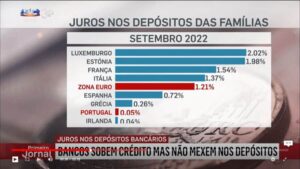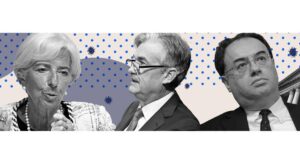GBP: Hard Brexit fears prevail
Sterling celebrated the third anniversary of the EU membership vote by tuning in to the selection process for the third prime minister since the referendum. Investors are not wholly relaxed about the situation. The two candidates for Theresa May’s job are giving their all to appeal to the 150k mostly pro-Brexit party members who will decide their immediate fate. One is pitching to leave the EU on 31 October “come what may, do or die” and the other looks unlikely to win.
Investors are principally concerned by what the UK economy might look like in a post-Brexit Britain and only vaguely interested in what it has been doing in the recent past. This is just as well, given the paucity of data this week. Public sector borrowing was less than expected in May. The CBI Distributive Trades Survey saw a sharp fall in retail sales and consumer confidence fell “across the board”. Unable to pick out any good bits, investors marked down the pound by an average of 0.9%. It lost out to all but the Japanese yen.
EUR: No help from the data
Euroland statisticians were hardly any more forthcoming than their British colleagues. The only “hard” data were for German consumer prices, which put inflation at a provisional 1.6% in June, up from 1.4% in May. The rise had no effect on the euro, given the European Central Bank’s obvious inclination towards looser monetary policy. The rest of the data were “soft”; the product of surveys rather than measurements.
Last Friday’s provisional purchasing managers’ indices were mostly better than forecast. That did not make them good. Germany’s manufacturing PMI had another grim month down at 45.4, well below the 50 breakeven level that represents stagnation. IFO’s survey of business confidence identified improvements in construction and the consumer supply chain while for manufacturers and services firms the climate worsened. GfK found a slight softening of consumer confidence. The euro was in the middle of the field, a cent higher against sterling and two thirds of a US cent to the good.
USD: More Fed dovishness
In antepenultimate position among the major currencies the US dollar had only a slightly better week than sterling. It picked up a third of a cent against sterling and lost two thirds of a cent to the euro. The US did no great favour to the dollar. Provisional PMIs for manufacturing and services were not far above breakeven at 50.1 and 50.7. A 2.5% rise in existing home sales was eclipsed by a 7.8% fall in the economically more important new home sales. Durable goods orders were not far from forecast and did not rock the boat.
Trade war stories were plentiful enough but had little impact on the dollar. The main influence there was the developing Federal Reserve narrative. An outbreak of dovishness last Friday had St. Louis Federal Reserve president James Bullard explaining why he voted for a rate cut and Minneapolis’s Neel Kashkari claiming that “aggressive policy action… is required to re-anchor inflation expectations”.
CAD: Tracking oil higher
On average the Loonie was unchanged against the other major currencies. It added half a US cent and strengthened by a cent and a half against sterling. Two things worked in its favour: higher oil prices and a perceived thaw in the Sino-US trade war ahead of the G20 meeting this weekend. The Canadian economic data made little difference.
Retail sales increased by 0.1% in April, less than the expected 0.3%, and wholesale sales beat forecast with a monthly rise of 1.7%.
Oil went up by 4% over the week, not exactly steadily but without any worrying setbacks. The Canadian dollar stuck fairly closely to the path of WTI crude, matching most, if not all of its moves. On trade, the Loonie took heart from a comment by US treasury secretary Steve Mnuchin, who told CNBC “We were about 90% of the way there [with a deal] and I think there’s a path to complete this”.
AUD: Further rate cut possible
The Australian and New Zealand dollars were two of the week’s three top-performing major currencies. The Aussie picked up two and a half cents against sterling – 1.4% – and added four fifths of a US cent. It is a cent and a half higher against the pound than at the end of May. For most of the week the Aussie stayed out of the headlines.
Other than an on-target 0.2% monthly rise in private sector credit there were no Australian economic data of any consequence. Reserve Bank governor Philip Lowe did no damage with a speech about “The labour market and spare capacity”. Whilst he conceded that “it is not unrealistic to expect a further reduction in the cash rate”, he said nothing that investors did not already know.
In common with other commodity-oriented currencies the Aussie received some advantage from a comment by the US treasury secretary on Wednesday. He said “We were about 90% of the way there [towards a deal with China] and I think there’s a path to complete this”.
NZD: No “surprise” cut from RBNZ
On Tuesday and Wednesday the NZ dollar was the top performer among the majors and it parlayed those advantages into an overall win for the week. It strengthened by nearly three and a half cents against sterling – 1.8% – and added one US cent. The NZ ecostats were neither here nor there. Credit card spending increased by 6.6% in the year to May and the trade surplus for that month was less than expected. “Headline business confidence reversed May’s lift, down 6 points to net -38%.”
The Reserve Bank of New Zealand’s monetary policy statement was modestly helpful to the Kiwi. Although it concluded by saying “Given the downside risks around the employment and inflation outlook, a lower OCR [Official Cash Rate] may be needed”, investors welcomed the RBNZ’s decision to leave rates unchanged this week.
For corporate partnerships enquiries, please call: +44 (0) 203 823 0526 or email: corporatepartnerships@moneycorp.com
For personal partnerships enquiries, please call: +44 (0) 207 828 7000 or email: partners@moneycorp.com
To find out more about suitable solutions, please call us on: +44 (0) 207 823 7400, email: partners@moneycorp.comor, visit our website here
moneycorp is a trading name of TTT Moneycorp Limited which is authorised by the Financial Conduct Authority under the Payment Service Regulations 2017 (reference number 308919) for the provision of payment services.
For competitive exchange rates, low transfer fees, expert guidance and the special offer of your FIRST TRANSFER FREE call moneycorp on +44 (0) 207 823 7400 or visit www.moneycorp.com/portugal-resident


























